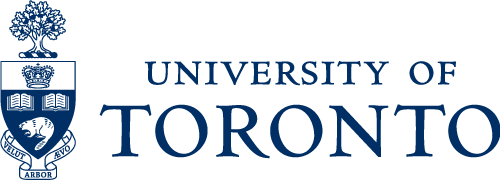The Flexible Learning Initiative (FLI) is a new program funded by the Vice-Provost Innovations in Undergraduate Education to provide support to instructors in the development of fully online or hybrid undergraduate courses. The program’s aim is to increase the range of online learning opportunities at the University of Toronto while building capacity for innovative approaches to teaching and learning. A key outcome of the course design process is the availability of more flexible options that leverage online technologies to accommodate scheduling or geographic constraints while providing a rich learning experience.
Features of the FLI include:
- Teams of three instructors from the same department or program that will work collaboratively to explore needs within their discipline area while re/designing their courses.
- A faculty development program will leverage the new Course Design for Online materials and include support for use of course data to inform design plans.
- Each cohorted team will address a focus area of strategic importance to their program, unit and/or division. Examples include:
- Equity, diversity and inclusion
- Experiential learning
- Data-informed design
- Other discipline specific themes
The cohort for 2022-23 includes:
Department of Statistical Sciences, Faculty of Arts and Science
- Bethany White, Statistics and Scientific Inquiry in the Life Sciences
- Katherine Daignault, Methods of Data Analysis I
- Sam Caetano, Surveys, Sampling and Observational Data
Department of Chemical Engineering and Applied Chemistry, Faculty of Applied Science and Engineering
- Jennifer Farmer, Physical Chemistry
- Daniela Galatro, Heat and Mass Transfer
- Lydia Wilkinson, Communication
Department of Mathematical and Computational Sciences, University of Toronto, Mississauga
- Alex Rennet, Linear Algebra I*
- Jaimal Thind, Linear Algebra I
- Maria Wesslen, Linear Algebra I
*Course to be offered in range of online and hybrid formats
Over the course of the year participants will be building upon lessons learned, and enhance course design work done, during our shift to remote/online teaching and learning during the last two years. Instructors will improve upon those courses that underwent a modality shift to remote delivery and create an intentional, high quality, ‘digital by design’ hybrid courses that meet UofT expectations for meaningful student engagement and assessment.
Contact digital.learning@utoronto.ca for more information.
Program Updates
Workshop 1
Programming began in October 2022 with the first workshop for all participants, facilitated by Digital Learning Innovation unit team. In this first workshop we took the time to welcome and orient learners to the FLI program and began with a high level look at differentiating aspects of hybrid course design as well as began our course redesign decisions. Our focus was on an exploration of Fink’s taxonomy and the development of example learning outcomes to taxonomy for high level course goals.
Workshop 2
We met in February 2023 for our second full cohort workshop. Building off of the defined learning outcomes from our first workshop, in this session we introduced and applied the backward design process to a 3-column table. In the table we:
- Defined and identified active learning strategies for teaching and learning.
- Identified in-person and online solutions (tools and technology) for hybrid course design.
Workshop 3
In May 2023 we held our 3rd workshop for all FLI participants. We worked to complete the 3-column table we had developed over the first two workshops and focused on assessment practice and design. We spoke to the following:
- Define assessment, its purpose and review the principles of effective assessment design
- Identify assessments and assessment strategies for hybrid teaching and learning
- Explore authentic assessment and examples
- Design hybrid learning environment to consider diversity among learners
- Examine best practices for online assessment design and administration
- Discuss the role of artificial intelligence in assessment and academic integrity
By the end of the session all participants had a completed 3 column table with relevant assessments aligned to outcomes and learning activities.
Workshop 4
In November 2023 we held our 4th and final workshop for all FLI participants. The primary focus of the session was to hold a round table to share back our experiences with the re-design process. Each participant was given time to share and we asked them to consider two or three of the following as speaking items based on their interest/relevance to their experience:
- What is one design element you are most excited about integrating/to have already integrated?
- What design piece(s) are you still iterating on?
- What specific strategies or innovative approaches did you use/plan on using to engage students and promote active learning?
- How did you adapt your assessment methods, and what insights or outcomes did you gain from this adjustment?
- Did you encounter any unexpected challenges or opportunities in the redesign of specific course elements? If so, how did you navigate or leverage them?
- What advice would you give to your colleagues who are embarking on the journey of course redesign for online or hybrid learning? Are there any lessons learned or best practices you’d like to share?
Participants shared their successes with course design and content changes (e.g., course activities in new modes for hybrid, inclusion of new video assets, simulations, and worksheets). They also highlighted the importance of scaffolding activities for students and finding strategies to keep students engaged with content.
All participants highlighted the immense value they found in interacting with and learning from peers from various disciplines about their course designs, techniques and experiences throughout the program of activity.

